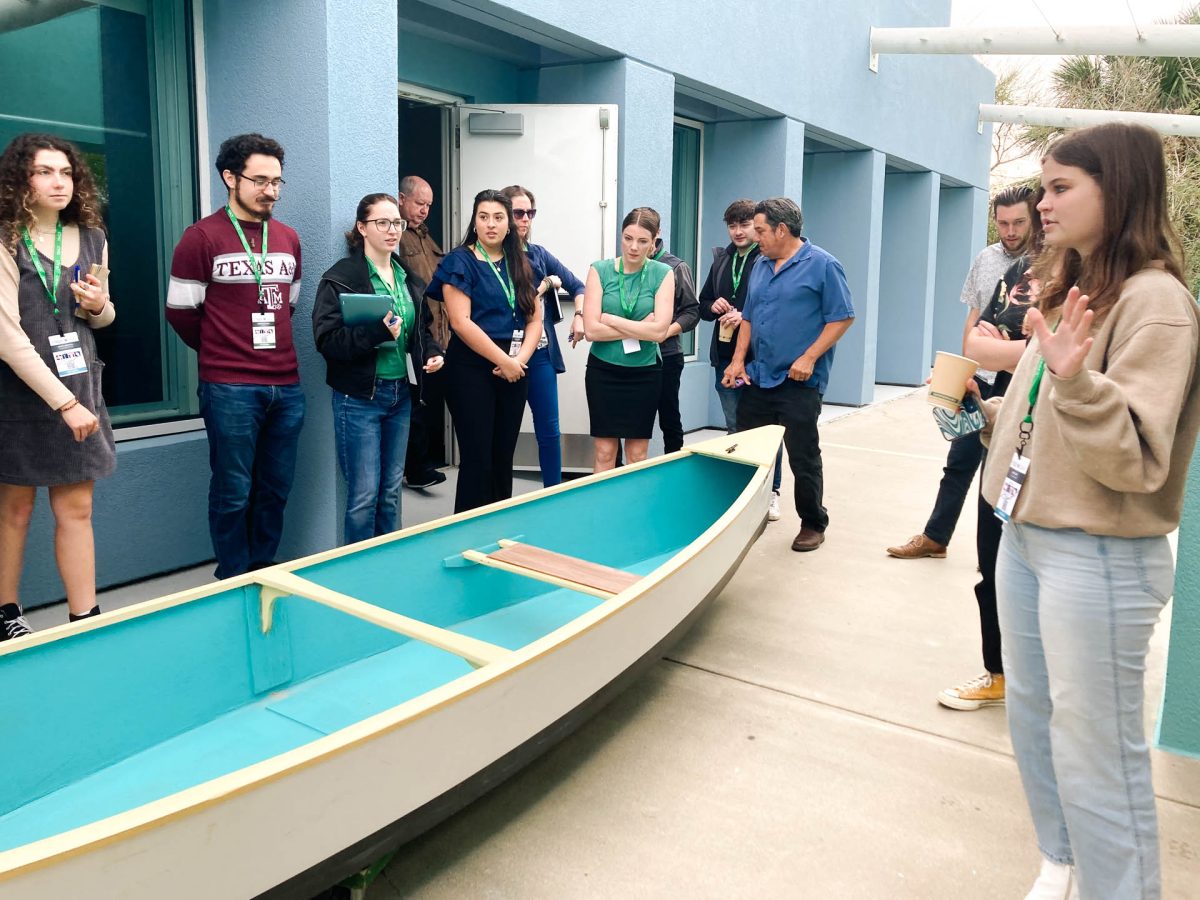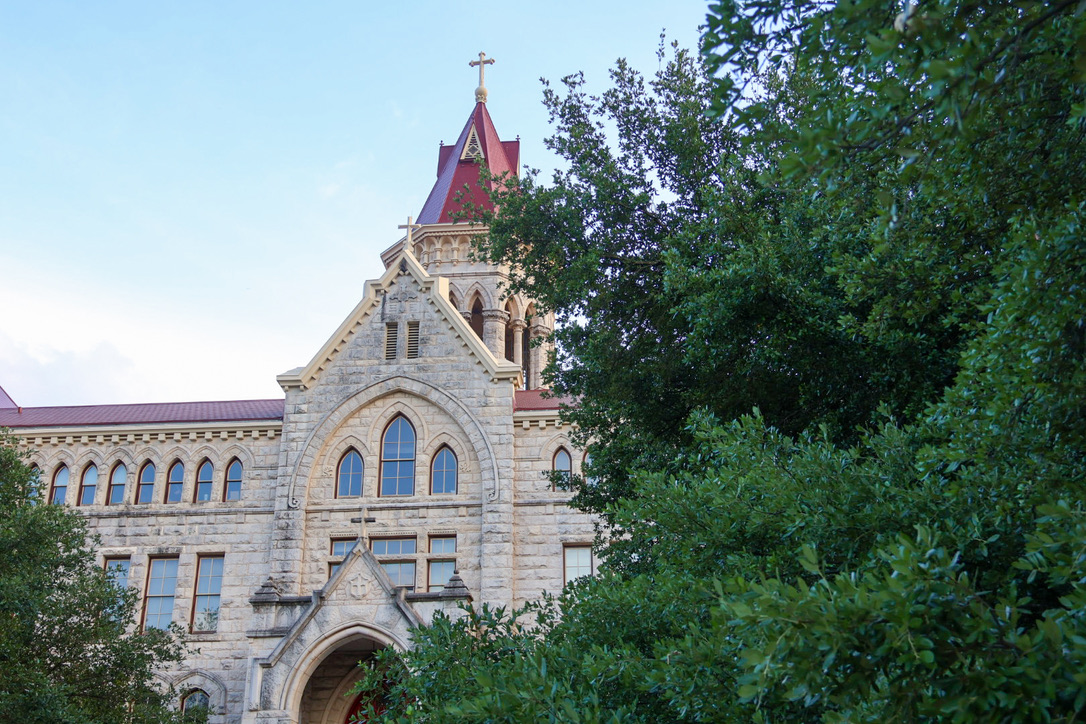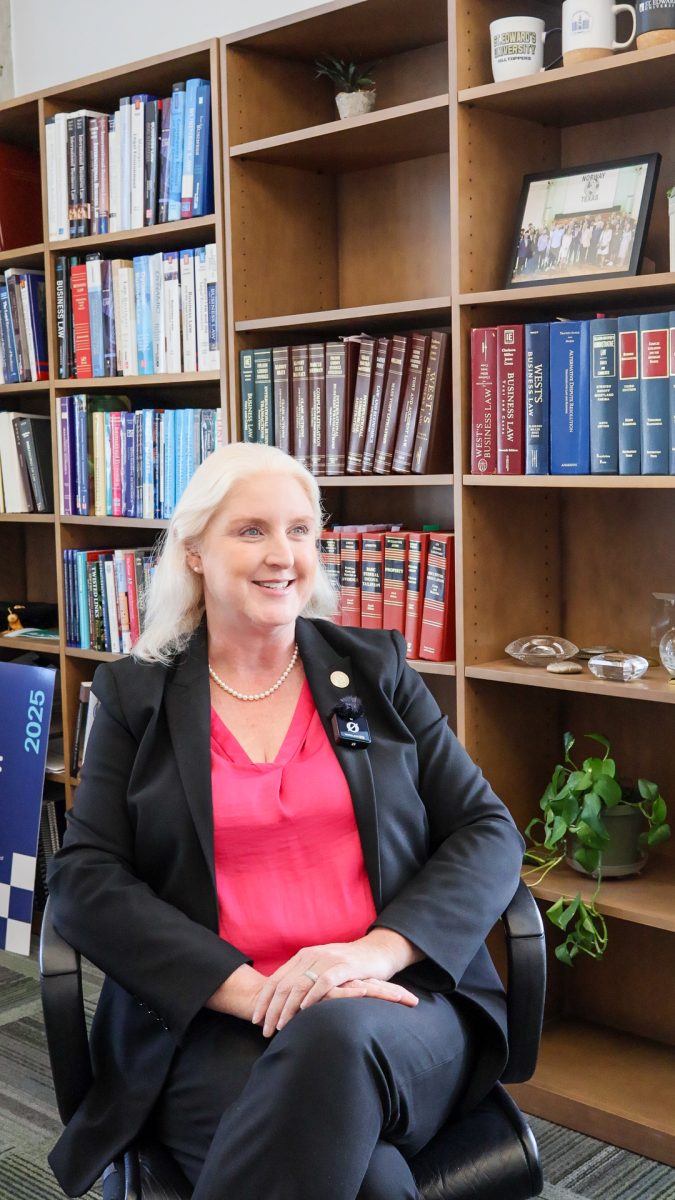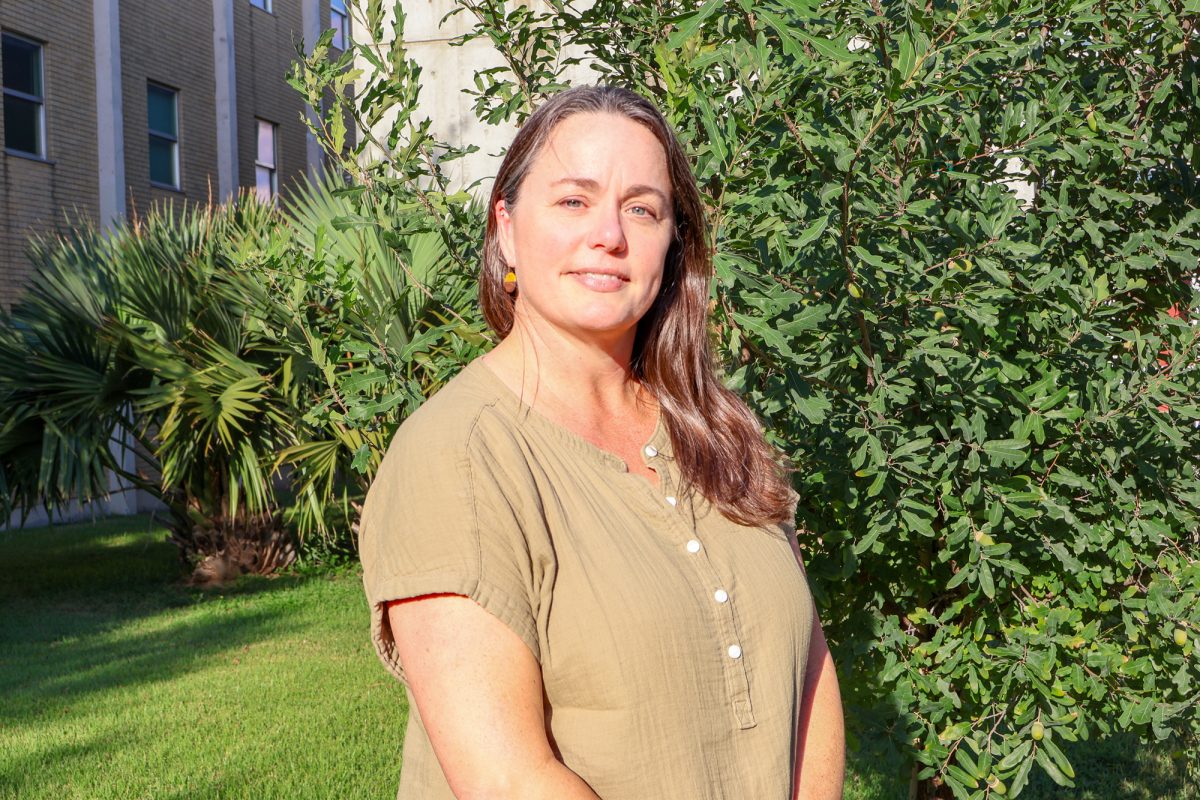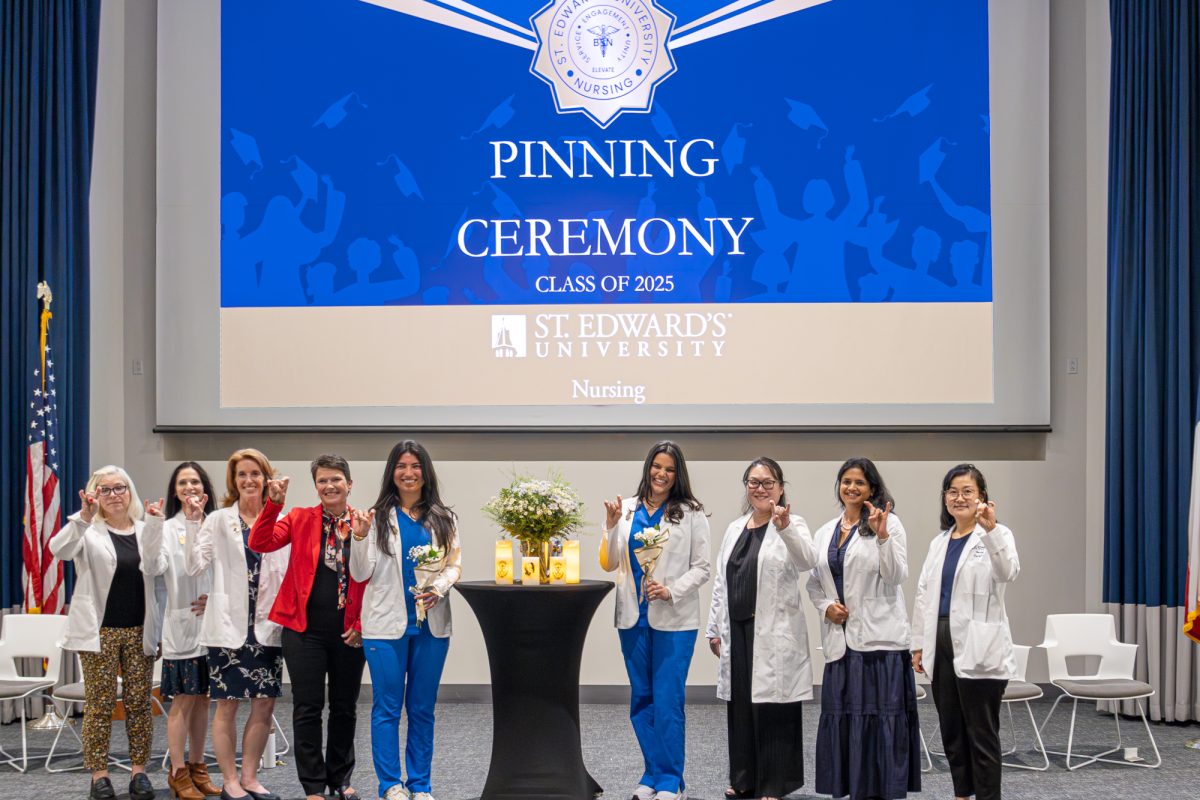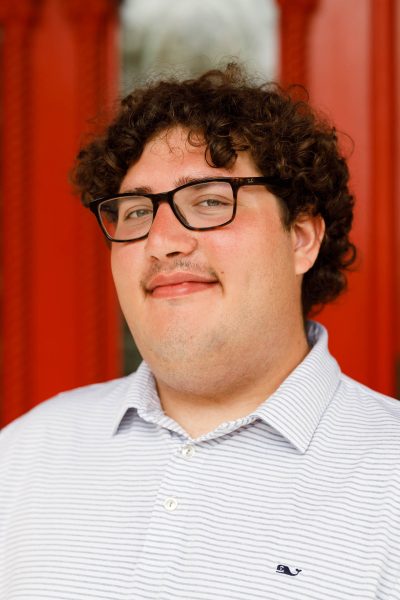St. Edward’s University’s environmental science and policy (ENSP) students, faculty and staff recently attended a statewide conference on South Padre Island entitled the Texas Regional Alliance for Campus Sustainability (TRACS).
The conference, which took place over three days, was meant to “bring campus collaboration and aspire students to lead the world into a sustainable future” which they seek to achieve through seminars and bonding events.
This is the second year that St. Edward’s has attended TRACS. This year, they brought four students to the conference. Dr. Amy Concilio, Dr. Steven Fletcher and campus arborist Roy Johnson served as staff liaisons with the group.
St. Edward’s hosted their own seminar at the conference centering around the new experiential learning boat-building course. The seminar, titled “Why building a Canoe Matters: Experiential Education,” was meant to spotlight the school’s program and its relation to wetland ecology. Compared to the traditional set up of seminars, St. Edward’s had an interesting opportunity to showcase due to the fact they had an hour to present rather than the typical 30-minute seminar.
“We wanted to make the format of our seminar different by including student voices, leaving more time for discussion, and taking the participants outside,” Concilio said. “We wanted to make it more hands-on and interactive — which turned out to be incredibly popular. People kept on coming up to us after our workshop saying how much they enjoyed it!”
Around 14 other universities and entities presented seminars for TRACS, all centering around sustainability’s intersection with their university’s campus, curriculum and operations.
“A lot of schools presented on an array of sustainability projects like transportation and waste reduction and talked about big picture things like how their offices run,” senior ENSP student Olivia Prior said. “Us St. Edward’s attendees learned a great deal from other schools and can bring this helpful information and ideas back to our campus.”
Concilio remarked about a seminar hosted by The University of Texas Rio Grande Valley (UTRGV) on the integration between business and sustainability.
“The UTRGV Business School gave a presentation on really inspiring work they’re doing with undergraduate students partnering with businesses in South Texas and creating incubator projects,” Concilio said.
Initiatives like this one, as well as the “re:wild Your Campus” are projects that the ENSP program sees as potential possibilities at St. Edward’s Campus. Re:wild Your Campus” is a program headed by UTRGV graduate student Mackenzie Feldman, which seeks to eliminate synthetic pesticides and inorganic land use in college campuses across the country.
The TRACS’ 2024 summit culminated in a poster presentation where St. Edward’s students presented theirs on the “Benefits of urban food forests on soil fertility and hydrological function”.
St. Edward’s small campus has allowed for campus sustainability to take a larger role than at other universities. Since 2003, the university has outlined several Landscape Master Plans to strive for more sustainable practices.
Still, other colleges are participating in sustainability projects that St. Edward’s is not. Several campuses such as the University of Texas at Austin, and the University of North Texas have Green Funds. A Green Fund is a method where students can receive grants funded by the College to engage in sustainable or “green” projects.


